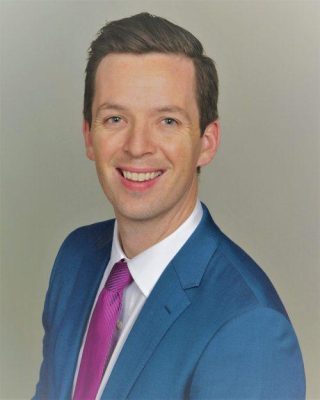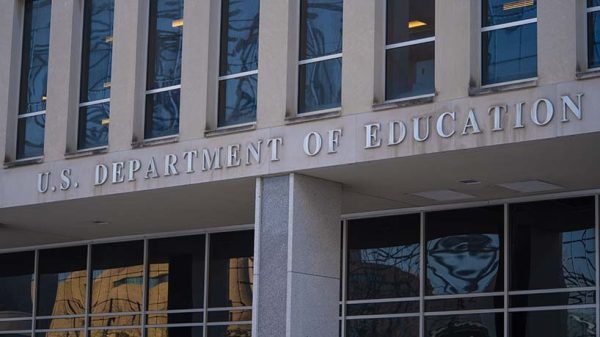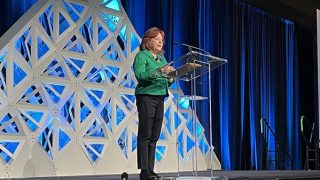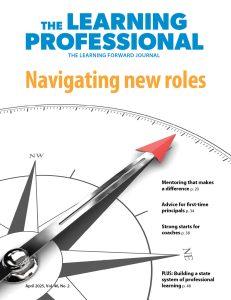We know with greater clarity than ever before: Unless teacher development is shaped by individual teacher and student needs and part of a coherent system of support, educator practices won’t change and students won’t have access to the great teaching they deserve.
The Mirage: Confronting the Hard Truth About the Quest for Teacher Development, a new study from TNTP on the impact of teacher supports in three large public U.S. school systems, reminds us that inertia is the status quo. Teachers and students are being shortchanged by poorly conceived, unproven systems of professional development.
The Mirage findings underscore the importance of examining our existing professional learning assumptions and efforts as well as demanding that current and future systems more closely measure impact. The report recommends that we re-envision professional learning—an effort that will require action from education stakeholders at all levels, including teachers, administrators and providers. As the report states, “…we must acknowledge that getting there will take much more than tinkering with the types or amount of professional development teachers receive, or further scaling other aspects of our current approach. It will require a new conversation about teacher development—one that asks fundamentally different questions about what better teaching means and how to achieve it” (The Mirage, p. 4).
Fortunately, the appetite and will for professional learning system redesign is growing — particularly from teachers themselves.
The major findings of The Mirage include the following:
- These districts invested substantively in teacher evaluation and improvement strategies;
- Despite these efforts, most teachers did not appear to improve their teaching practices substantially from year to year;
- Even when teaching practices did improve, this study couldn’t identify evidence of the conditions and mechanisms leading to their improvement; and
- These districts did not help teachers understand where they need to improve or how they would do so.
The recognition of the importance of improving outcomes from professional development is the primary reason that more than 25 leaders from top education advocacy, membership, and philanthropic organizations, as well as state and local education agencies, began meeting last year to collectively address this significant issue. These partners, including a representative from TNTP, have spent a year challenging assumptions, studying promising models within and beyond education, clarifying shared principles, and discussing individual and collective action plans. The principles provide the foundation for the next steps of the partners and their individual organizations and align closely to the recommendations of the report.
Professional learning must result in demonstrable evidence of improved teaching and learning. While this principle appears self-evident, as the findings from The Mirage indicate, current financial investments in professional learning, which recent studies estimate at $18 billion nationally, don’t necessarily mean that teaching and learning will improve. The educators who plan, support, and engage in professional learning must hold the same high expectations for adult learning that they hold for student learning. In practice, this means examining precisely what students need to learn, and then determining the relevant instructional practices teachers need to understand and use to meet student learning needs. Most importantly, adult learning must be continuously evaluated for its impact on changes in educator practice and student learning, using a framework such as Thomas Guskey’s five levels of professional development evaluation, which measures not only participant reactions and learning but also changes in practices and student learning outcomes.
Personalized professional learning, aligned with school and system goals, leads to improvements in teaching and learning. As The Mirage shows, many teachers do not perceive that they have opportunities to learn what they need to, how they need to. The study showed that even experienced teachers don’t receive high ratings on all key instructional skills. During a time when leaders at the state and district levels are prioritizing career and college readiness for all students, they must also prioritize shifts in how and what teachers learn.
The bottom line is that the system for professional learning must be reimagined. While we have thought for years that we know what it takes to help people improve, the evidence doesn’t support it. We must get serious about creating the systems of support that our teachers and students need most. An essential feature of such systems must be the continuous examination of whether and how redesigned professional learning impacts student learning. Teachers interviewed for The Mirage, “…painted a picture of a well-intentioned system that, at least from a teacher’s perspective, is as disjointed and impersonal as it is vast” (The Mirage, p. 28). The report describes what teachers experience as a “maze of development activities.” Unless and until systems integrate the many departments and initiatives that touch a teacher’s recruitment, support and retention, the scattershot barrage of activities, no matter how well designed on their own, can’t reliably contribute to broader improvement outcomes.
The Mirage makes three key recommendations.
- Redefine what it means to help teachers improve their teaching;
- Re-evaluate existing professional learning supports and programs; and
- Reinvent how we support effective teaching and learning at scale.
Learning Forward’s professional learning partners strongly agree with these recommendations. The organizations, both individually on behalf of their stakeholders and collectively as a partnership, are working on plans to address them. The next steps include:
- Defining the critical elements of professional learning systems that are essential to supporting teachers to bring effective teaching practices to scale;
- Establishing tools and resources that help all educators measure the return on investment and impact of teacher supports and other models of professional development so they can make well-informed decisions;
- Leveraging the collective intelligence and work of the partners to invent new strategies and systems that take effective teaching and learning to scale and eliminate all barriers along the way.
“The Mirage outlines in bold relief why I committed to this effort,” said Wendy Robinson, Superintendent of Ft. Wayne (IN) Community Schools. “We may have experiences, knowledge, and research that inform what we believe to be true about effective professional development, but without redesigned systems of learning, and without a demand for ongoing assessment of improvement efforts, we’ll never see our aspirations realized or understand the impact of our investments.”
“I see this report as closely tied to the groundswell of acknowledgement that teachers don’t have time to waste on meaningless professional development,” said Robert Avossa, Superintendent of Palm Beach (FL) schools.
“The more we listen to what teachers say they need to learn to be in top form for their students, the more likely we are to co-develop effective systems of support for their continuous growth,” said Karen Cator, President & CEO of Digital Promise. “Reinventing learning means recognizing that teacher and leader roles are outmoded for the schools our kids need today—we have a real opportunity here,” Cator continued.
“I am not surprised that someone would call effective professional learning a mirage at this point,” said Stephanie Hirsh, Executive Director of Learning Forward. “While Learning Forward’s Standards for Professional Learning describe many of the elements that this report recommends as pathways forward, it is incredibly frustrating that too few teachers are experiencing the learning that would help them offer the best teaching to our nation’s children,” she said.
“Over 30 years of mounting evidence provide a clear roadmap for the future of teachers’ professional learning,” said Barnett Berry, CEO of the Center for Teaching Quality. “Ironically, the high-quality teacher development systems found in top-performing nations have been informed by American researchers and educators; but our policymakers have not put that know-how to systematic use — yet.”
“Where I find hope,” Hirsh said, “is in the ever-growing recognition that professional learning needs the same level of scrutiny that we focus on student learning. The more attention we pay to whether and how professional learning systems change teaching practices and improve student learning, the closer we come to achieving equitable learning opportunities for all students.”
Hirsh continued, “We should see great progress in system redesign over the next two years. Learning Forward’s facilitation of not only this group of partners but also a community of practice of learning sites is intended to deepen stakeholder knowledge and amplify evidence-based practices at the district and school level along with propelling action throughout partner organizations and their constituencies. We have wonderful partners in this work, thanks to the Bill & Melinda Gates Foundation.”
This statement represents the shared views of Learning Forward and its partners, including:
Stephanie Hirsh, Learning Forward
Rod Allen, Cowichan Valley (BC) School District
Robert Avossa, Palm Beach (FL) Schools
Barnett Berry, Center for Teaching Quality
Catherine Brown, Center for American Progress
Karen Cator, Digital Promise
Tim Daly, TNTP
Jennifer Davis, National Center on Time & Learning
Dan Domenech, AASA, The Superintendents Association
Segun Eubanks, National Education Association (NEA)
Stephen Fink, Center for Educational Leadership, University of Washington
Tabitha Grossman, Hope Street Group
Tomeka Hart, Southern Education Foundation
Bryan Hassel, Public Impact
Tony Jackson, Asia Society
Kathi Littmann, Tacoma Communities Foundation
Susan Moxley, Lake County (FL) Schools
William Olsen, KIPP KC
Scott Palmer, EducationCounsel
Donald Pemberton, Lastinger Center for Learning, University of Florida
Janice Poda, Council of Chief State School Officers (CCSSO)
Rosita Ramirez, NALEO Educational Fund
Wendy Robinson, Fort Wayne (IN) Community Schools
Kenneth Salim, Weymouth (MA) Public Schools
David Silver, RTI International
Melissa Tooley, New America Foundation
Marla Ucelli-Kashyap, American Federation of Teachers (AFT)
Michael Watson, Delaware Department of Education








